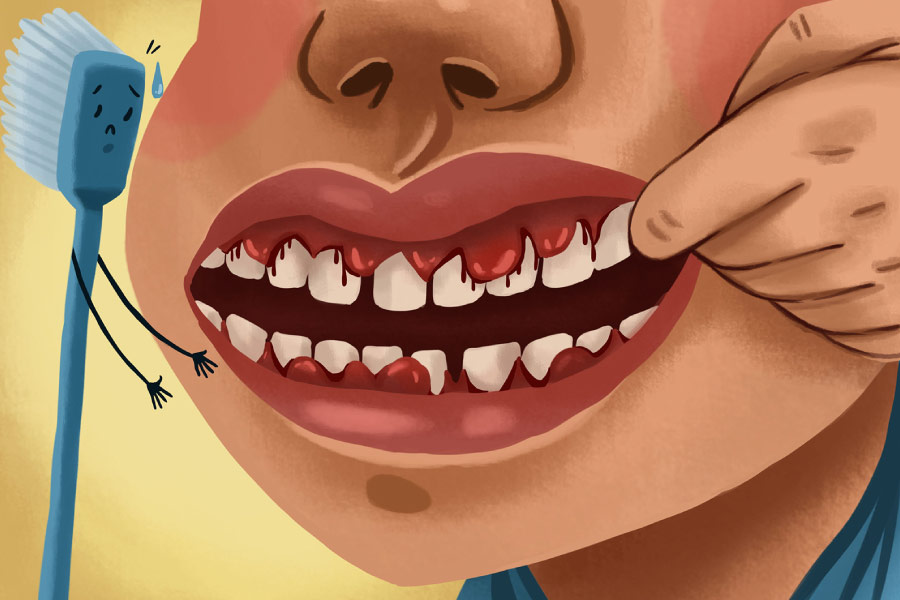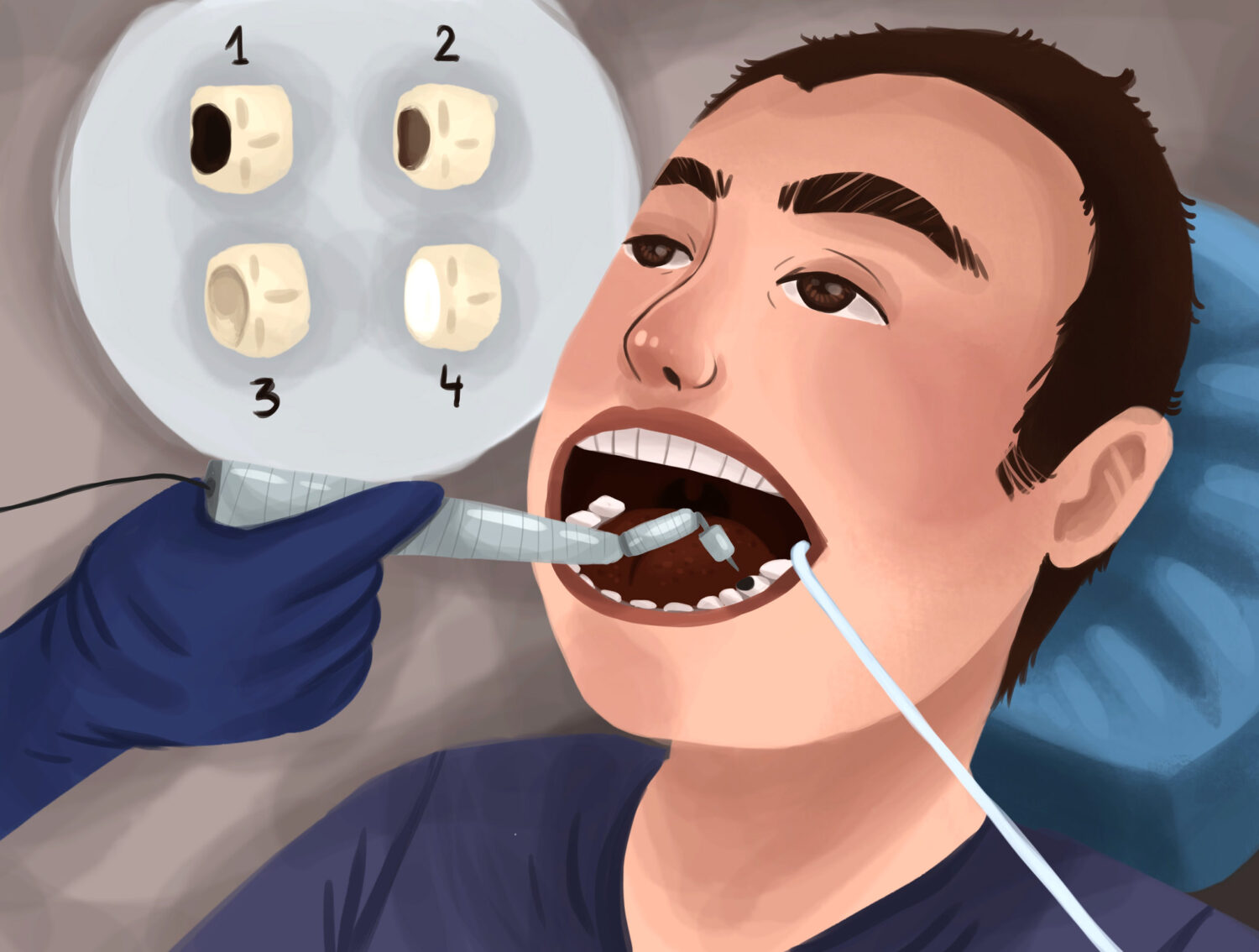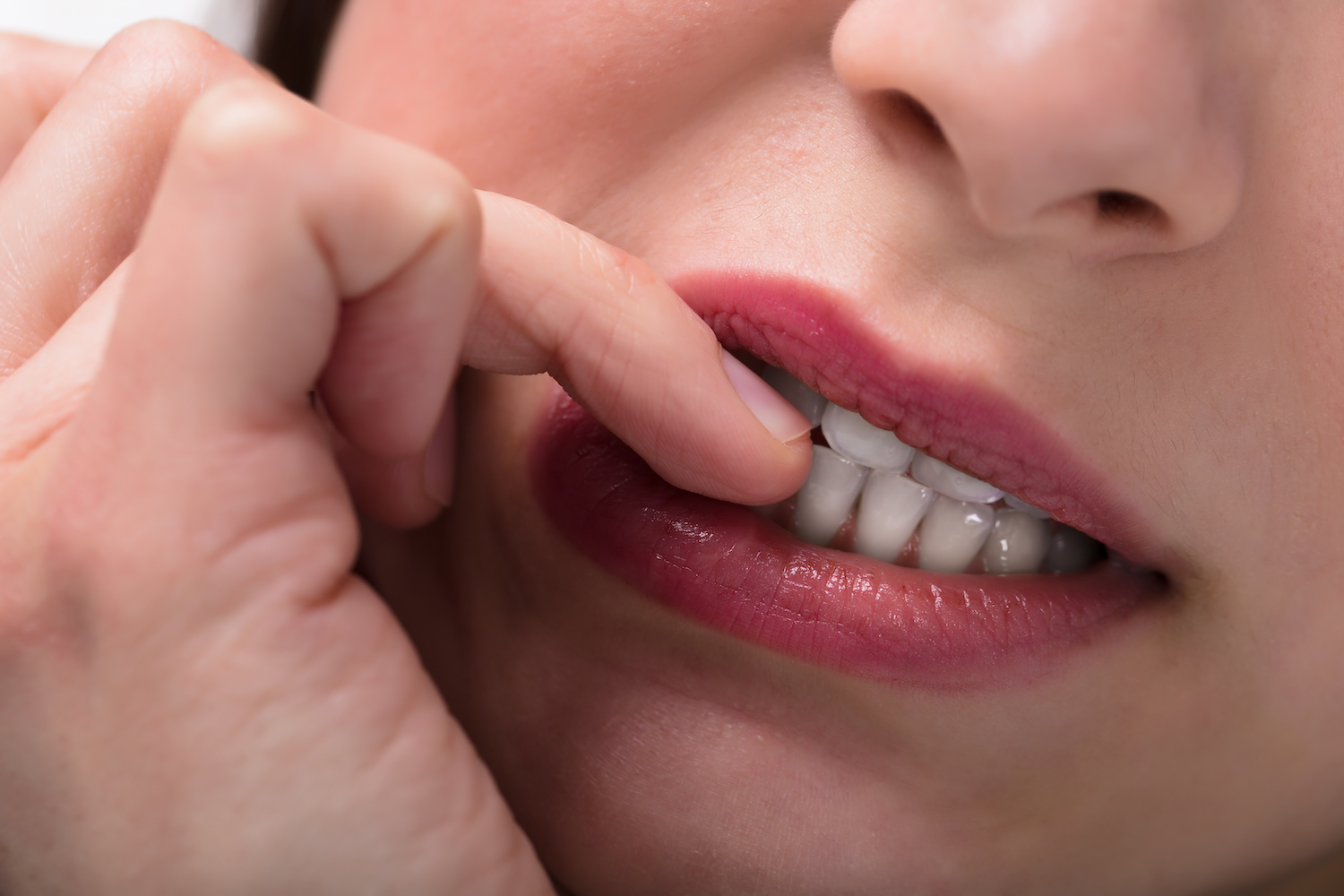In this post, we share practical and interactive ideas for parents to celebrate Children's Dental Health Month with their kids.
Why Do My Gums Bleed?

Noticing blood in your mouth can be concerning. You may wonder if it’s an oral health issue, or if you injured the soft tissue inside of your mouth. At CarolinasDentist, with various locations throughout North Carolina, is here to help our patients understand the causes of bleeding gums. Read on to discover possible reasons why your gums bleed.
Your Toothbrush
If you’re experiencing bleeding after you brush your teeth, you may be brushing too hard. The bristles of your toothbrush could also be too hard for your sensitive gum tissue. Both could lead to bleeding.
Switch to a soft-bristled toothbrush and brush more gently, avoiding vigorous sawing motions. You could also start using an electric toothbrush instead of a manual toothbrush. A good electric toothbrush has a safety feature that stops the brushing if you apply too much pressure. Keep in mind that if you’re brushing too hard or using too hard of a toothbrush, you could also be damaging the enamel of your teeth.
Gum Disease
Plaque build-up along your gumline will cause gingivitis. Gingivitis means your gums are irritated. This condition is characterized by inflammation, tenderness, redness, and bleeding. You can often reverse the problem by improving your oral health habits. Be sure to brush twice a day for two minutes each time, floss at least once a day, flossing regularly, visit us every six months for a cleaning, eat a balanced diet, drink plenty of water, and avoid tobacco products.
If gingivitis worsens, it leads to a gum infection called periodontitis that requires professional treatment. Your gums pull away from your teeth, forming pockets. These bacteria-filled pockets will harm the portion of your teeth under the gumline and can even damage your jawbone. CarolinasDentist offers Perio Protect®, a gentle and effective way to treat gum disease that can’t be reversed with improved oral hygiene.
Other Causes of Bleeding Gums
While the most common cause of bleeding gums is plaque, bleeding gums could also be a sign of a vitamin deficiency, hormonal changes, a bleeding disorder, or a side effect of a blood thinner.
Schedule Your Next Cleaning & Checkup!
Untreated gum disease leads to pain, tooth loss, and bone loss. If you experience bleeding gums that are chronically swollen, tender, and abnormally red, schedule a visit to our office to receive a thorough oral health evaluation and teeth cleaning. With routine visits, we can help determine if there is a different underlying cause of your bleeding gums. Contact us today to schedule your next appointment.
Photo by Authority Dental under CC 2.0









